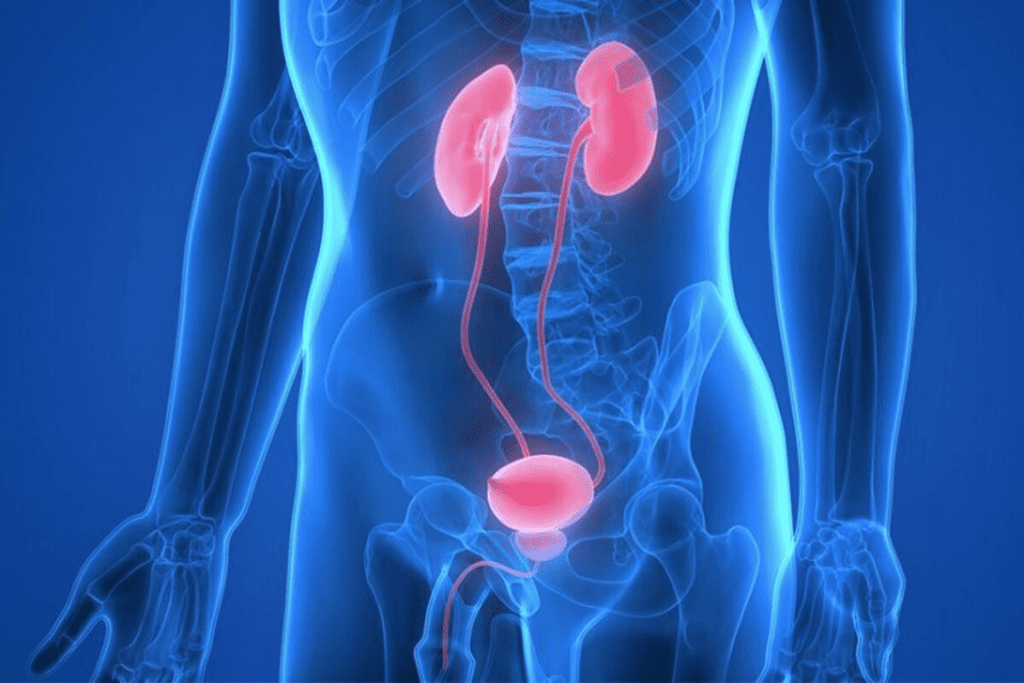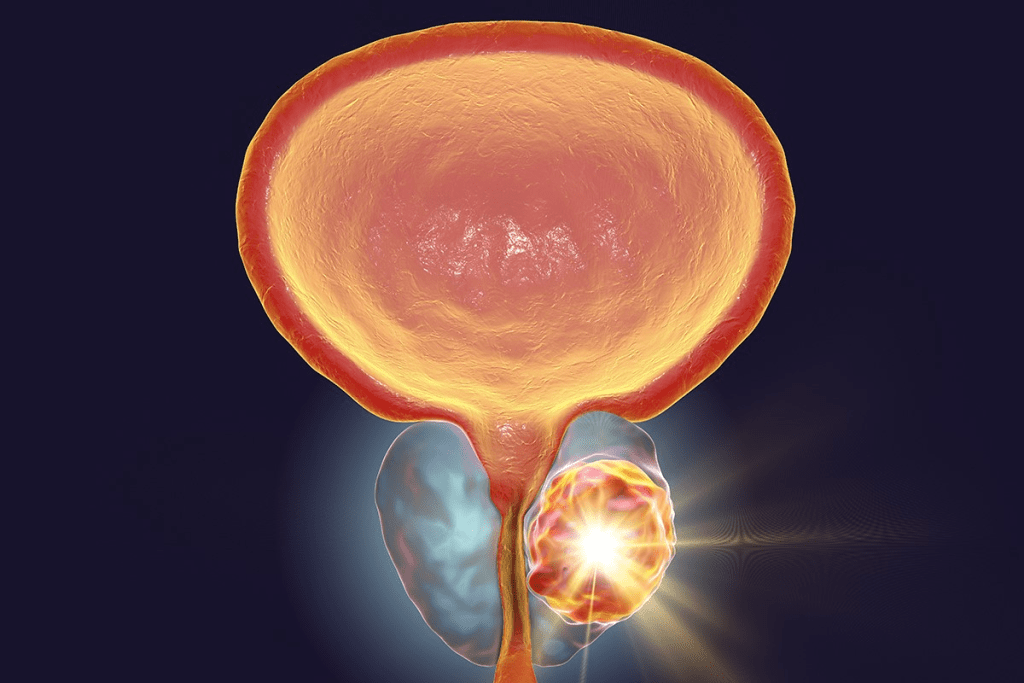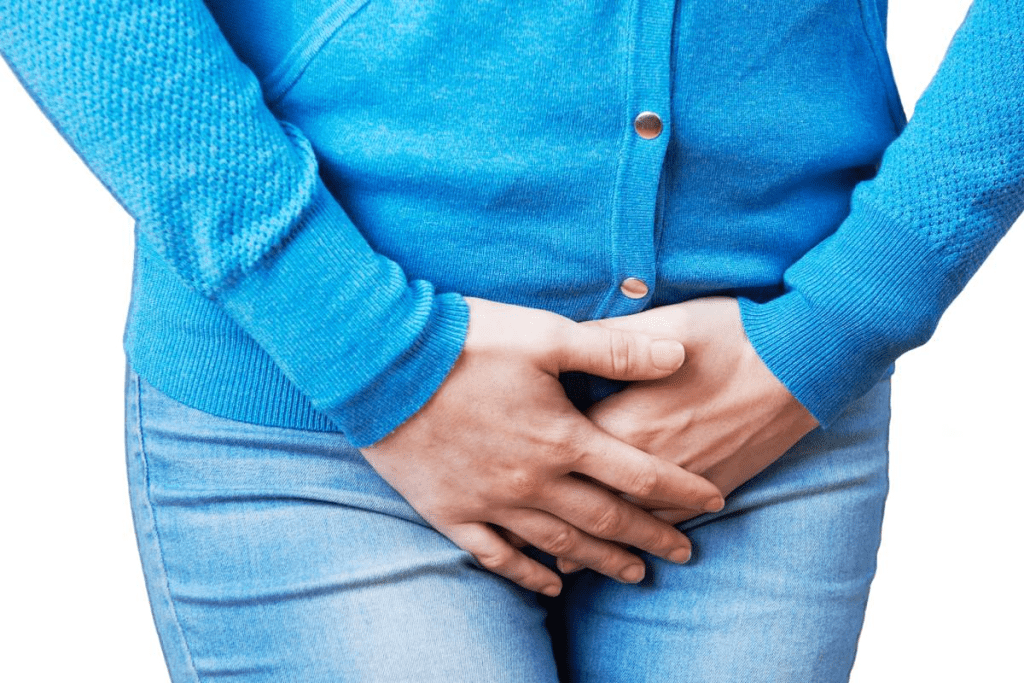
Did you know millions of people worldwide face urinary tract issues? These problems often come from poor bladder health. Keeping your bladder healthy is key for your overall well-being. It helps get rid of waste from our bodies. Explore natural methods to cleanse your bladder and alleviate various bladder problems for improved urinary health.
Our kidneys filter out waste and extra fluids. They store these in the bladder until it’s time to go. But, if the bladder doesn’t work right, it can cause infections and discomfort. Luckily, there are natural ways to keep your bladder healthy.
By making a few simple changes, we can boost our urinary tract health. This can greatly improve our quality of life.
Key Takeaways
- Understanding the importance of bladder health
- Learning natural methods for cleansing the bladder
- Discovering lifestyle changes to support urinary tract health
- Recognizing the role of kidneys in maintaining bladder health
- Adopting habits to prevent urinary tract issues
Understanding Your Urinary System
Our urinary system is key to getting rid of waste and extra fluids. It’s a complex system of organs that filters blood, controls blood pressure, and keeps electrolyte balance. This system is vital for our health.
The Function of the Bladder
The bladder is a muscular organ that holds urine until we need to go. It’s in charge of storing urine, letting us decide when to urinate. The bladder’s muscles contract and relax to let urine flow.
How the Urinary System Works
The urinary system, or renal system, includes the kidneys, ureters, bladder, and urethra. The kidneys filter waste and extra fluids, making urine. This urine goes through the ureters to the bladder, where it waits to be released through the urethra.
Where Is the Bladder Located
The bladder is in the pelvis, behind the pubic bone. In men, it’s in front of the rectum. In women, it’s in front of the uterus and vagina. Knowing where the bladder is helps us understand its role in the urinary system.
| Organ | Function | Location |
| Kidneys | Filter waste and excess fluids from the blood | Back, just above the waistline |
| Ureters | Transport urine from kidneys to bladder | From kidneys to bladder |
| Bladder | Stores urine until it is expelled | Pelvis, behind the pubic bone |
| Urethra | Expels urine from the body | From bladder to the outside of the body |
Signs Your Bladder Needs Cleansing

It’s important to know when your bladder needs cleaning to stay healthy. Your bladder is key to your urinary system. Ignoring its health can cause discomfort and bigger problems. We’ll show you signs that mean it’s time for bladder cleansing.
Physical Symptoms to Watch For
Some physical signs show your bladder might not be working right. Pain or discomfort in the lower abdomen could mean a problem. Also, frequent urination or feeling like you always need to go can mean your bladder needs help.
Bladder pain is another sign. It might feel like a dull ache or sharp pain when you pee. If you see these signs, your bladder might need cleaning.
Changes in Urination Patterns
Changes in how you pee can show bladder health issues. Peeing more often or needing to pee at night can mean stress on your bladder. Trouble starting to pee or a weak flow can also point to bladder problems.
When to Seek Medical Attention
Some bladder issues can be fixed with natural cleansing and lifestyle changes. But, some need a doctor’s help. Severe pain, blood in your urine, or recurring urinary tract infections mean you should see a doctor. These signs can point to serious health issues.
If natural remedies don’t work or your symptoms get worse, see a doctor. Early treatment can stop bigger problems and keep your urinary system healthy.
The Benefits of Natural Bladder Cleansing
Using natural methods for bladder cleansing can boost your urinary health and life quality. It helps our urinary system work better and lowers the chance of bladder problems.
Improved Urinary Health
Natural bladder cleansing gets rid of toxins and bacteria that can cause infections. This leads to improved urinary health by making sure the bladder and urinary tract work right.
- Flushes out bacteria and toxins
- Reduces the risk of urinary tract infections (UTIs)
- Enhances the overall function of the urinary system
Reduced Infection Risk
One big benefit of bladder cleansing is less chance of infections. Natural cleansing keeps harmful bacteria from building up in the bladder.
- Prevents bacterial colonization in the urinary tract
- Lowers the risk of recurrent UTIs
- Supports the body’s natural defense mechanisms
Enhanced Quality of Life
Keeping your bladder healthy through natural cleansing can greatly improve bladder health and life quality. A healthy bladder means less discomfort, pain, or needing to urinate often.
This can lead to:
- Increased confidence in daily activities
- Better overall health and well-being
- Reduced anxiety related to urinary issues
Adding natural bladder cleansing to your routine can bring these benefits and keep your urinary system healthy.
Hydration: The Foundation of Bladder Health

Drinking enough water is key to a healthy bladder and overall health. We often forget how important it is. Water helps remove toxins and keeps our urinary system healthy.
How Much Water Is Enough?
The amount of water you need depends on several factors. These include your age, sex, weight, and how active you are. Most people should drink at least eight 8-ounce glasses of water a day. But, some might need more, like athletes or those living in hot places.
To find out how much water you should drink, think about these things:
- Your activity level: More active people need more water.
- Your climate: Hot and humid places need more hydration.
- Your overall health: Some health issues might change how much water you need.
Best Times to Drink Water
Drinking water at the right times can help a lot. We recommend drinking water:
- When you wake up to rehydrate after sleep.
- Before meals to help with digestion.
- Before, during, and after exercise to stay hydrated.
- Before bed, but not too much to avoid waking up.
Signs of Proper Hydration
How do you know if you’re drinking enough? Here are signs you’re hydrated:
- Your urine is pale yellow or clear.
- You feel full of energy and alert.
- Your skin looks healthy and moist.
- You have regular bowel movements.
If you’re not drinking enough, you might feel tired, have dark urine, dry skin, and constipation.
Types of Water for Optimal Bladder Health
Not all water is the same for bladder health. Here are some good types:
- Filtered water: It removes impurities and minerals that can bother the bladder.
- Alkaline water: Some think it can balance the body’s acidity.
- Mineral water: It’s full of minerals, but be careful of too much of certain minerals.
Bladder-Cleansing Foods to Include in Your Diet
Eating a balanced diet can help keep your bladder healthy. The foods we eat greatly affect our health, including our urinary system. Adding specific foods to your diet can prevent urinary problems and improve your overall health.
Fruits and Vegetables for Bladder Health
Fruits and vegetables are key for a healthy bladder. They are full of antioxidants, fiber, and water. These help remove toxins and keep your urinary system working right. Good choices include cranberries, blueberries, and leafy greens like spinach and kale.
Antioxidant-Rich Foods
Antioxidants protect the body from free radicals, which can harm your urinary health. Foods like berries, pomegranates, and green tea are full of antioxidants. They help reduce inflammation and keep your bladder healthy.
Anti-Inflammatory Options
An anti-inflammatory diet supports bladder health by lowering body inflammation. Foods like salmon and walnuts are high in omega-3s, which fight inflammation. Adding turmeric and ginger to your meals can also help.
Creating a Bladder-Friendly Meal Plan
To make a meal plan good for your bladder, focus on whole, nutrient-rich foods. Include a variety of colorful fruits and vegetables, whole grains, lean proteins, and healthy fats. Drinking plenty of water is also key. By choosing the right foods, you can support your bladder and overall health.
Herbal Remedies for Natural Bladder Cleansing
Herbal remedies can help with natural bladder cleansing. They have been used for a long time to keep the urinary system healthy. These natural remedies are a key part of many traditional medicines.
Effective Herbs for Urinary Health
Many herbs are good for urinary health. Here are some of the best ones:
- Uva Ursi: It has antiseptic properties, helping to protect the urinary tract.
- Dandelion Root: It acts as a diuretic, helping to remove toxins from the bladder.
- Cranberry: It helps prevent UTIs by stopping bacteria from sticking to the bladder walls.
- Marshmallow Root: It soothes the urinary tract, reducing irritation and inflammation.
How to Prepare Herbal Teas for Bladder Health
Herbal teas are easy to make and good for bladder health. To make one, steep 1-2 teaspoons of dried herb in boiling water for 5-10 minutes. Then, strain and drink. Some herbs, like uva ursi, might need a shorter steeping time to avoid bitterness.
Recommended Dosages and Frequency
The right dose and how often to take herbal remedies can vary. It’s best to start with a small dose and increase as needed. For example, cranberry supplements are usually taken in doses of 400-800 mg per day.
Potential Interactions with Medications
Even though herbal remedies are natural, they can interact with some medications. For example, uva ursi can affect blood thinners, and dandelion root might not be good for people with certain kidney problems. Always talk to a healthcare provider before trying new herbal remedies, if you’re on medication or have a health condition.
With caution and professional advice, you can use herbal remedies to help your bladder health naturally.
Foods and Beverages to Avoid for Better Bladder Health
To keep your bladder healthy, it’s important to know which foods and drinks to avoid. These can irritate your bladder and affect your urinary health. Knowing which foods to avoid can help prevent discomfort and serious issues.
Common Bladder Irritants
Some foods and drinks can irritate the bladder, causing symptoms like urgency and discomfort. Common irritants include:
- Caffeine: Found in coffee, tea, and some sodas, caffeine can increase urine production and irritate the bladder.
- Alcohol: Alcohol can act as a diuretic, increasing urine production and potentially irritating the bladder.
- Spicy Foods: Foods with high spice levels can irritate the bladder and worsen symptoms.
- Acidic Foods: Citrus fruits and tomatoes can be irritating due to their acidity.
- Carbonated Drinks: Fizzy drinks can cause bladder discomfort and increase the need to urinate.
Hidden Sources of Irritants
Some foods and beverages contain hidden sources of bladder irritants. For example:
- Processed Foods: Often contain artificial sweeteners, preservatives, and other additives that can irritate the bladder.
- Certain Medications: Some medications, such as diuretics and certain antibiotics, can affect bladder health.
- Foods with Artificial Additives: Foods with artificial colors, flavors, and preservatives can potentially irritate the bladder.
Gradual Elimination Strategies
To identify and manage bladder irritants, consider a gradual elimination strategy:
- Keep a Food Diary: Record your food and drink intake along with any bladder symptoms to identify irritants.
- Eliminate Suspected Irritants: Gradually remove suspected irritants from your diet one at a time to assess their impact.
- Monitor Symptoms: Keep track of any changes in symptoms after eliminating certain foods or beverages.
Healthy Substitutions
Replacing irritating foods and beverages with healthier alternatives can improve bladder health. Consider these substitutions:
- Herbal Teas: Instead of caffeinated teas, opt for herbal teas that are soothing and caffeine-free.
- Water: Stay hydrated with water, which is the best beverage for overall health and bladder function.
- Non-Acidic Foods: Choose non-acidic fruits and vegetables to reduce irritation.
- Low-Sugar Alternatives: Replace sugary drinks with low-sugar or sugar-free alternatives.
By being mindful of dietary choices and making informed substitutions, individuals can take significant steps towards improving their bladder health and overall well-being.
Supplements That Support Urinary Tract Health
Keeping your urinary tract healthy is key to feeling good. Supplements can help a lot. It’s important to know what supplements are out there and what they do.
Essential Vitamins and Minerals
Vitamins and minerals are vital for a healthy urinary tract. Vitamin C boosts your immune system and fights off free radicals. Magnesium and potassium help prevent kidney stones and keep your urinary system working right.
| Nutrient | Benefit | Food Sources |
| Vitamin C | Antioxidant properties, immune system support | Oranges, strawberries, bell peppers |
| Magnesium | Reduces risk of kidney stones | Dark leafy greens, almonds, avocados |
| Potassium | Supports overall urinary health | Banana, sweet potatoes, spinach |
Probiotics for Bladder Health
Probiotics are good bacteria that help your gut and urinary tract. They keep bad bacteria in check, which can prevent UTIs. Lactobacillus and Bifidobacterium are good for your urinary health.
Natural Supplements with Scientific Backing
Some natural supplements are backed by science for urinary health. Cranberry supplements might stop UTIs by keeping bacteria from sticking to your bladder. D-mannose also looks promising in fighting UTIs.
How to Choose Quality Supplements
Choosing the right supplements is important. Look for products from trusted makers who follow GMPs. Check for third-party certifications like NSF International or ConsumerLab.com to ensure quality.
Always talk to a doctor before starting any supplements. They can make sure they’re right for you and won’t mix badly with your meds.
Exercises to Strengthen Your Bladder Muscles
Bladder exercises are a simple yet effective way to strengthen the muscles that control urination. By incorporating these exercises into your daily routine, you can improve bladder control and reduce the risk of urinary incontinence.
Kegel Exercises for Women and Men
Kegel exercises target the pelvic floor muscles, which are key for bladder control. To do Kegel exercises, contract and release the muscles you use to stop urine flow. Both men and women can do this by:
- Identifying the correct muscles
- Contracting these muscles for a few seconds
- Releasing the contraction
- Repeating the process several times
Pelvic Floor Training Techniques
Pelvic floor training strengthens muscles that support the bladder and other pelvic organs. You can do these exercises in different positions, like lying down, sitting, or standing. The goal is to use the right muscles and stick to a routine.
Creating an Exercise Routine
To make the most of bladder exercises, create a consistent routine. Start with Kegel exercises or pelvic floor training three times a day. As your muscles get stronger, increase how often and how long you do them.
Tracking Improvement in Bladder Control
Keep track of any bladder control improvements as you exercise. Use a bladder diary or just note any changes. This will help you stay motivated and adjust your routine if needed.
Bladder Retraining Techniques
Managing bladder issues can be done through bladder retraining. This method includes scheduled voiding and urge suppression. It’s a therapy that improves bladder control and lessens urinary incontinence symptoms.
Scheduled Voiding
Scheduled voiding helps your bladder hold urine longer. Start by keeping a bladder diary. This tracks when and how much you urinate, showing patterns and a baseline interval.
For instance, if you urinate every hour, try to go every hour and 15 minutes. As your bladder gets stronger, you can increase this time.
Urge Suppression Strategies
Urge suppression is key in bladder retraining. When you feel the urge, try deep breathing, Kegel exercises, or distracting activities. These can help you control your bladder and reduce how often you need to urinate.
Practicing these methods often can improve your bladder control. This means you’ll urinate less often.
Tracking Your Progress
It’s important to track your progress in bladder retraining. Keep a record of your voiding schedule, urine leakage, and urgency episodes. This helps spot patterns and adjust your schedule as needed.
Also, regularly check in with a healthcare provider. They can offer valuable insights and guidance.
Adjusting Your Schedule Over Time
As you get better with bladder retraining, adjust your voiding schedule. If you can hold urine longer without leakage, increase the time between voids.
If you have frequent leakage or discomfort, you might need to shorten your interval. The goal is to find a balance between bladder capacity and comfort.
Lifestyle Changes for Long-term Bladder Health
Making lifestyle choices is key to keeping our bladder healthy. Focus on stress, sleep, exercise, and bathroom habits. These changes can greatly improve bladder health over time.
Stress Management
Stress can harm our bladder, causing frequent urination or incontinence. Try meditation, yoga, or deep breathing exercises to reduce stress. Adding these to your daily routine can help relax you and protect your bladder.
Sleep Quality and Bladder Function
Good sleep is vital for bladder health. Bad sleep can make you urinate more often. To sleep better, keep a regular sleep schedule, relax before bed, and avoid caffeine and screens at night.
- Establish a consistent sleep schedule
- Create a relaxing bedtime routine
- Avoid caffeine and electronics before bedtime
Physical Activity Recommendations
Regular exercise is important for bladder health. It boosts circulation, strengthens the immune system, and keeps weight in check. Try moderate-intensity exercises like brisk walking, cycling, or swimming for 30 minutes daily.
- Brisk walking
- Cycling
- Swimming
Bathroom Habits That Promote Health
Good bathroom habits are essential for bladder health. Don’t wait too long to go, stay clean, and avoid straining. Also, try double voiding and take breaks to stretch and move.
| Healthy Habit | Benefit |
| Not delaying bathroom trips | Reduces risk of urinary tract infections |
| Practicing good hygiene | Prevents bacterial growth |
| Avoiding straining during urination | Reduces risk of bladder damage |
Natural Solutions for Specific Bladder Problems
Understanding natural solutions for bladder problems is key. We’ll look at remedies for common issues. This will help you improve your urinary health.
Remedies for Urinary Tract Infections
Urinary tract infections (UTIs) can be very uncomfortable. Natural remedies can help prevent and treat UTIs. Cranberry juice may stop bacteria from sticking to the bladder walls. Probiotics also help keep the urinary tract healthy by balancing bacteria.
Other natural ways to help include:
- Drinking lots of water to flush out bacteria
- Using herbal teas like uva ursi, which fights bacteria
- Keeping good hygiene practices
| Remedy | Benefits |
| Cranberry Juice | Prevents bacterial adhesion |
| Probiotics | Supports healthy bacterial balance |
| Uva Ursi Tea | Antimicrobial properties |
Addressing Overactive Bladder Naturally
Overactive bladder (OAB) can be managed with lifestyle changes and natural remedies. Dietary adjustments are important. Avoiding caffeine and spicy foods can help.
Other strategies include:
- Pelvic floor exercises to strengthen muscles
- Bladder training to increase bladder capacity
- Managing fluid intake to reduce urgency
Relief for Bladder Pain and Pressure
Bladder pain and pressure can be very hard to deal with. Natural relief comes from warm compresses and relaxation techniques like deep breathing or meditation.
Other approaches include:
- Avoiding foods that can irritate the bladder
- Staying hydrated to flush out irritants
- Using herbal supplements that soothe the bladder
Managing Incontinence Without Medication
Incontinence can be managed naturally with pelvic floor exercises, also known as Kegel exercises. These exercises strengthen the muscles that support the bladder.
Additional strategies include:
- Maintaining a healthy weight to reduce pressure on the bladder
- Using absorbent products to manage leakage
- Establishing a regular voiding schedule
By using these natural solutions, you can manage bladder problems and improve your urinary health.
Preventative Measures to Avoid Future Bladder Problems
Preventing bladder problems is possible with good habits, diet, and awareness. Knowing how to prevent issues helps keep your urinary system healthy.
Daily Habits for Optimal Urinary Health
Healthy daily habits are key for bladder care. This means drinking lots of water, staying clean, and avoiding things that irritate the bladder. Here are some tips:
- Drink at least 8-10 glasses of water a day.
- Stay away from caffeine and spicy foods that can bother the bladder.
- Exercise regularly to boost your overall health.
Seasonal Considerations for Bladder Care
Seasons can affect bladder health in different ways. In cold weather, staying warm helps prevent infections. In hot weather, drinking more water is important to avoid dehydration. It’s important to adjust our habits with the seasons.
| Season | Bladder Care Tips |
| Winter | Stay warm, avoid cold exposure |
| Summer | Stay hydrated, avoid dehydration |
Early Intervention Strategies
Acting early is vital to stop small bladder issues from getting worse. Be aware of changes in how you urinate or feel discomfort. If you notice anything different, see a doctor right away.
Spotting bladder problems early can greatly improve treatment results. If you have unusual symptoms, talk to a healthcare expert.
Creating a Preventative Maintenance Schedule
Keeping your bladder healthy means having a maintenance plan. This includes regular doctor visits, watching what you eat, and drinking enough water. Being proactive can lower the chance of bladder problems later on.
By following these steps, you can greatly improve your urinary health and overall well-being.
Conclusion: Maintaining a Healthy Bladder Naturally
Keeping your bladder healthy is key to feeling good. We’ve looked at natural ways to clean and support your bladder. These steps can make your bladder work better and lower the chance of problems.
We talked about drinking enough water, eating foods that help your bladder, and using herbs. We also mentioned exercises to make your bladder muscles stronger. Making lifestyle changes and taking steps to prevent bladder issues is also important. These natural steps help keep your bladder in top shape.
Choosing to use these natural methods can lead to better bladder health. It improves your life and helps your overall health. We urge you to begin your journey to a healthier bladder today.
FAQ
Where is the bladder located in females?
The bladder is in the pelvis, behind the pubic bone. It’s in front of the uterus in females. Knowing where it is can help spot problems.
What are the common signs that my bladder needs cleansing?
Signs include changes in how often you pee, feeling a sudden need to pee, or pain while peeing. These could mean your bladder needs attention.
How can I strengthen my bladder muscles?
Do Kegel exercises to strengthen your bladder muscles. These exercises help control urination. Regular pelvic floor training also helps.
What foods are good for bladder health?
Eat foods high in antioxidants like berries and leafy greens. Omega-3 fatty acids also help. A balanced diet with fruits, veggies, and whole grains is best.
Are there any herbal remedies that can help with bladder health?
Yes, herbs like cranberry, uva ursi, and d-mannose support urinary health. But, talk to a healthcare professional before using them, even if you’re on meds.
How much water should I drink to keep my bladder healthy?
Drinking enough water is key for bladder health. Aim for at least eight glasses a day. Your needs might change based on your activity level and health.
Can stress affect my bladder health?
Yes, stress can harm your bladder. Try stress-reducing activities like meditation or deep breathing to help.
What lifestyle changes can I make to support long-term bladder health?
Keep a healthy weight, exercise regularly, manage stress, and use good bathroom habits. These actions support long-term bladder health.
Are there any supplements that can help with urinary tract health?
Yes, supplements like vitamin C, probiotics, and herbal extracts can help. But, choose quality supplements and talk to a healthcare professional before starting.
How can I prevent future bladder problems?
Stay hydrated, practice good hygiene, avoid irritants, and manage health conditions. Regular health check-ups can also help catch problems early.
References
Nasrollahian, S., Sharifzadeh, M., & Ghaedi, E. (2024). An update on alternative therapy for Escherichia coli-induced urinary tract infections. Current Drug Research Reviews, Advance online publication. https://www.sciencedirect.com/science/article/pii/S1572100024001145


































